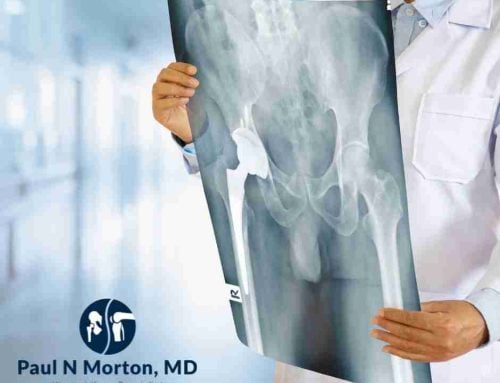You may be asking yourself, “Am I too young for a hip replacement surgery?” The answer is: it depends. Hip replacement surgeries are becoming increasingly common in younger adults, and there are many factors that contribute to the decision of whether or not hip replacement surgery is right for you. Some key considerations include your age, weight, overall health, and activity level. Hip replacement surgery is an elective procedure, which means that it is not always medically necessary. However, if you are experiencing hip pain or stiffness that is impacting your quality of life, hip replacement surgery may be an option worth considering.
A hip replacement surgery is a surgical procedure in which the hip joint is replaced with an artificial hip joint. This surgery is typically recommended for adults who are experiencing hip pain and stiffness from arthritis, hip dysplasia, trauma, or avascular necrosis. The surgery involves making an incision to reach the hip joint, removing the damaged hip joint, and replacing it with an artificial hip joint. The artificial hip joint is usually made of metal, ceramic, and plastic.
If you are younger than 60 years old, you may be considered a “young” hip replacement candidate. The average age of a patient who undergoes hip replacement is 67 years old according to the American Joint Replacement Registry. In general, hip replacements are more successful in patients who are younger and healthier. Younger patients tend to have softer, more pliable tissue, which can make for a quicker and easier recovery. Additionally, younger patients heal faster and are more likely to achieve a full range of motion following surgery. If you are in good overall health and do not have any other major medical conditions, you may be a good candidate for hip replacement surgery.
Common causes for hip replacement in younger patients include:
- Arthritis: There are many different types of arthritis, but the most common type that affects the hip is osteoarthritis. This type of arthritis is caused by the wear and tear of the cartilage in the hip joint.
- Hip dysplasia: This is a condition in which the hip socket does not fully cover the ball portion of the hip joint. This can lead to instability and pain in the hip joint.
- Trauma: A hip fracture or dislocation can damage the cartilage in the hip joint and lead to pain and stiffness.
- Avascular necrosis: This is a condition in which there is insufficient blood flow to the hip bone. This can cause the bone to die, leading to hip pain and stiffness.
- Femoroacetabular impingement (FAI): This condition occurs when there is too much friction in the hip joint. This can lead to the wear and tear of the cartilage and eventually hip arthritis.
Hip replacements have historically done poorly in young aged patients because they place higher demands on their implants for a longer time compared to older patients. Studies from 1994 to 20011 estimated that about 58% of hip replacements will last 25 years. Furthermore, 90% of patients will last at least 15 years. There is a concern that younger patients may require multiple surgeries in the future. Fortunately, there have been several advances in hip replacement surgery that have improved the long-term outcomes in younger patients.
Advances in hip replacements over the last decade:
- Bearing surfaces have made several evolutions over the years. Early metal-on-polyethylene bearings had higher failure rates as the polyethylene produced wear debris. Modern highly cross-linked polyethylene is more wear-resistant, and studies have not demonstrated a difference in revision rates between ceramic on polyethylene or ceramic on ceramic bearings. Metal-on-Metal implants have fallen out of favor due to the risk of systemic metal ion exposure as well as bone and soft tissue destruction. Failure due to polyethylene wear is becoming less common with modern vitamin-E infused highly cross-linked polyethylene.
- Larger femoral heads decrease the incidence of hip dislocation by allowing a greater range of motion of the hip. There has been no evidence of increased polyethylene wear with larger femoral heads.
- Cementless fixation allows for the growth of bone onto the surfaces of total hip implants, which may lead to lower rates of revision in patients who are younger than 65 years of age.
- Shorter stems inserted into the femur preserve patient bone, and allow for a more physiologic loading. This may lead to less thigh pain, easier revision surgery, and less bone destruction compared to longer stems.
- Minimally invasive surgical approaches such as the Anterior Hip may allow for fewer dislocations, and earlier return to function with low complication rates compared to other approaches.
- Robotic-assisted hip replacement surgery allows for the more accurate placement of implants and decreased bone resection compared to conventional hip replacement surgery.
- Analysis of the hip-spine relationship is important to decreasing dislocations in patients with abnormally stiff spines. Analysis using preoperative templates with sitting and standing films improve implant positioning, especially with the assistance of robotics.
- Same-day or outpatient hip replacements allow for patients to return home without needing to stay in a hospital or nursing facility. This reduces exposure to hospital-acquired infections, decreases costs, and improves patient satisfaction
- Tranexamic acid is a medication taken during surgery that improves the stabilization of blood clotting, almost eliminating the need for blood transfusion after hip replacement surgery.
Hip replacement surgery has come a long way and is now considered a safe and effective procedure. There are many advances in hip replacement technology that have improved the outcomes in younger patients, including cementless fixation, shorter stems, minimally invasive surgical approaches, and robotic-assisted surgery. Hip replacements can now be done as same-day or outpatient procedures, which reduces costs and exposure to hospital-acquired infections. With these advances, hip replacement surgery is increasingly a more safe and more effective option for people with severe hip pain.





